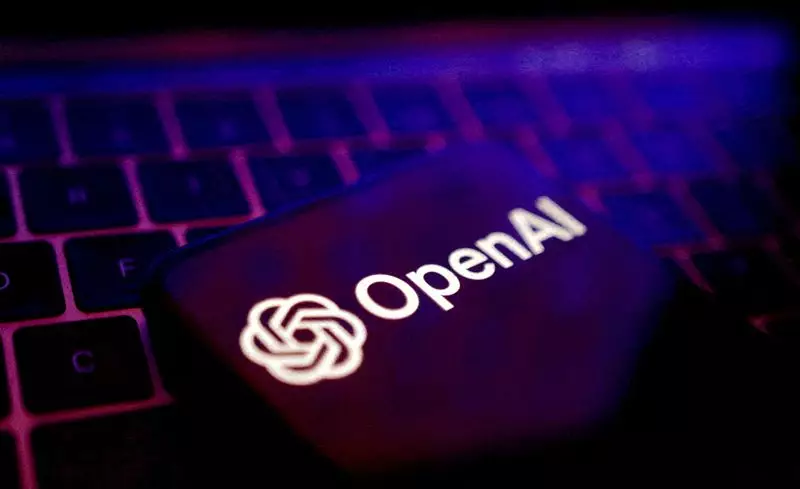OpenAI, recognized as one of the premier artificial intelligence startups globally, is preparing for a significant $6.5 billion financing round that carries implications not only for the company’s valuation but also for its underlying corporate ethos. For the first time, reports indicate that OpenAI may be restructuring its financial framework by utilizing convertible notes. As it approaches a potentially staggering valuation of $150 billion, the stakes are high, with implications regarding the removal of profit ceilings for its investors. This change raises pertinent questions about the company’s trajectory from its inception as a non-profit initiative to its current pursuit of artificial general intelligence (AGI).
The Challenge of Valuation and Investment
OpenAI’s anticipated valuation surge is intertwined with its ability to modify its corporate structure, particularly the removal of the profit cap that has previously governed returns for investors. Sources demonstrate a consensus that existing financial backers, including prominent names like Microsoft and Khosla Ventures, alongside new entries like Nvidia and Apple, are eager to partake in this funding endeavor. However, the negotiation landscape becomes convoluted if OpenAI’s restructuring efforts fall through. In such a scenario, the company may need to reevaluate what the conversion rate of shares would be, leading to a reduction in valuation.
The essence of this pressure lies in OpenAI’s aspiration to compete in a fiercely competitive landscape seeking unprecedented investments to sustain its transformative quest towards AGI. The need for increased funds reflects the high costs associated with research, development, and eventual deployment of advanced AI technologies.
Governance Concerns and Ethical Considerations
If the removal of the profit cap gains traction—requiring approval from OpenAI’s non-profit board—the transformation could signal a paradigm shift not only in financial strategy but also in the company’s core governance dynamics. The original intent behind the establishment of a profit cap was to promote ethical innovation, ensuring that OpenAI would advance research with a balance of commercial objectives and a commitment to safety and sustainability.
However, this potential pivot away from profit limitations raises ethical concerns. By prioritizing investor returns over its foundational mission, OpenAI could be perceived as deviating from its promise to develop AI for the greater benefit of humanity. The fundamental question surfaces: can a balance be achieved between profitability and ethical responsibility in the ever-evolving tech landscape?
OpenAI has transitioned significantly since its establishment in 2015, initially designed as a non-profit research entity. The current commercialization strategy, focusing on subscription-based services such as ChatGPT, has drastically increased user engagement, now exceeding 200 million users. While this expansion signifies success in the market, it also leads to the potential dilution of the original mission.
In pursuit of innovation, the duality of OpenAI’s objectives—commercial success versus ethical AI development—presents a considerable balancing act. The need to attract and retain investment is understood, yet the ramifications of prioritizing investor interests over the company’s ethical obligations remain a contentious issue among analysts and stakeholders.
As OpenAI moves forward with its funding ambitions and potential structural changes, the technology world watches with keen interest. The implications of this funding round extend beyond just financial capital; they touch upon profound questions about corporate governance and the responsibilities of tech companies engaged in groundbreaking work. How OpenAI navigates these waters will not only shape its future but will also influence broader discourse on the role of profit in the technology sector.
While the financial maneuvering may facilitate immediate growth and competitive advantage for OpenAI, the long-term impacts on its mission, ethical framework, and corporate governance will require scrupulous consideration. The company stands at a crossroads: can it maintain its foundational principles while adequately meeting the demands of investors in an increasingly commercialized world? The answer to this question remains to be seen, but the outcome will likely reverberate across the technology landscape.

